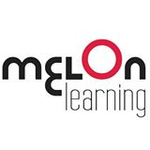Description

Melon LMS

SCL

Trainual
Comprehensive Overview: Melon LMS vs SCL vs Trainual
Melon LMS
a) Primary Functions and Target Markets
- Primary Functions:
- Melon LMS (Learning Management System) is designed to deliver, track, and manage training and educational courses. It offers features such as course creation, user management, reporting and analytics, and content integration.
- Target Markets:
- Primarily targets educational institutions, corporate firms for employee training, and government agencies. It's suitable for both e-learning initiatives and blended learning environments.
b) Market Share and User Base
- Melon LMS serves a niche market compared to larger, more established LMS platforms. Its market share is modest, particularly in regions where other LMS platforms dominate.
- The user base consists mainly of small to medium-sized organizations who require a customizable and cost-effective learning management solution.
c) Key Differentiating Factors
- Customizability: Offers flexible configurations and integration options.
- Cost-Effectiveness: Often more affordable for small to medium businesses compared to larger LMS systems.
- Ease of Use: Focused on simplicity, making it accessible for organizations without extensive IT infrastructure.
SCL (Schoology)
a) Primary Functions and Target Markets
- Primary Functions:
- SCL, or Schoology, offers a comprehensive LMS platform focused on delivering educational content. Key features include course management, learning analytics, integrations with third-party tools, and student engagement mechanisms.
- Target Markets:
- Primarily targets K-12 schools, higher education institutions, and also has applications for corporate training. Known for its emphasis on collaborative tools and user engagement.
b) Market Share and User Base
- Schoology is well-established in the educational sector with a significant presence, particularly in the K-12 segment in North America. It has a large user base that includes numerous educational institutions.
- The platform boasts a strong adoption rate in schools due to its reputation and comprehensive feature set.
c) Key Differentiating Factors
- Collaborative Focus: Emphasizes collaboration between students and teachers through interactive features.
- Integration Capability: Offers a wide range of integrations with existing educational tools and platforms.
- User Community: Has a robust user community that shares resources and best practices.
Trainual
a) Primary Functions and Target Markets
- Primary Functions:
- Trainual is a training and onboarding platform designed for SMEs (small and medium enterprises). It offers features like process documentation, employee training, standard operating procedure (SOP) creation, and performance tracking.
- Target Markets:
- Targets small to medium-sized businesses across various industries looking to streamline their onboarding and training processes.
b) Market Share and User Base
- Trainual has a growing presence, particularly in the SME sector. Its market share is still emerging but expanding due to its focus on solving specific pain points related to employee training and onboarding.
- The user base is focused on organizations that need efficient knowledge management tools to ensure consistency and alignment in operations.
c) Key Differentiating Factors
- Process Documentation: Unlike traditional LMS platforms, Trainual focuses extensively on documenting business processes and SOPs.
- Ease of Implementation: Designed for rapid deployment, making it appealing for smaller businesses with limited resources.
- Scalability: Capable of growing with a business, providing a structured approach to documenting company procedures as they evolve.
Comparative Summary
- Market Reach: Schoology (SCL) has the most substantial market presence and user base, especially in the education sector, while Trainual targets SMEs and Melon LMS focuses on customizable learning solutions for diverse needs.
- Functionality: Schoology is geared towards educational environments with a strong collaborative focus; Melon LMS emphasizes flexibility and cost savings; Trainual specializes in process documentation and onboarding.
- User Base and Adoption: Schoology's dominance in K-12 aligns with its robust integration capabilities and community support, while Trainual's simplicity and focus on small businesses offer an easy-to-adopt solution for startups and SMEs. Melon LMS appeals to organizations seeking customization and affordability.
Contact Info

Year founded :
Not Available
Not Available
Not Available
Not Available
Not Available

Year founded :
2018
Not Available
Not Available
Egypt
Not Available

Year founded :
2018
Not Available
Not Available
United States
http://www.linkedin.com/company/trainuals-sadcs2
Feature Similarity Breakdown: Melon LMS, SCL, Trainual
Here's a feature similarity breakdown for Melon LMS, SCL (Simplify, Clarify, Learn), and Trainual, based on their core features, user interfaces, and unique offerings:
a) Core Features in Common
-
Training Management:
- All three platforms offer comprehensive tools for managing training programs, including the creation, assignment, and tracking of courses.
-
Content Creation and Management:
- They provide features for creating and managing learning content. This can include organizing content into modules and courses and integrating multimedia elements.
-
Progress Tracking and Reporting:
- Users can track learner progress, completion rates, and performance metrics. Reporting tools to analyze these metrics are also common across the platforms.
-
Assessment and Quizzes:
- Each platform includes tools for creating quizzes and assessments to evaluate learner understanding and knowledge retention.
-
User Management:
- They allow the management of user accounts, including roles and permissions, to define different access levels for admins, instructors, and learners.
-
Integrations:
- Integration capabilities with other software solutions, particularly popular business tools and communication platforms, are supported by each of these products.
b) User Interface Comparison
-
Melon LMS:
- Typically offers a straightforward and user-friendly interface designed to simplify the learning process. Its design emphasizes easy navigation and accessibility, accommodating various user types with different levels of technical expertise.
-
SCL (Simplify, Clarify, Learn):
- Known for a minimalistic and clean interface focused on clarity and ease of use. The design emphasizes reducing distractions and streamlining the user experience to focus on essential learning activities.
-
Trainual:
- Features a modern and intuitive interface, with a strong focus on simplicity and ease of use. Its design is visually engaging and structured to facilitate easy navigation of training content and processes.
c) Unique Features
-
Melon LMS:
- May offer advanced customization options for branding and theming, allowing organizations to tailor the platform's look and feel to match their corporate identity.
-
SCL:
- Could include a proprietary learning methodology or pedagogy that emphasizes simplifying complex information and clarifying instructional content for better knowledge retention.
-
Trainual:
- Stands out with its focus on onboarding and process documentation. It not only serves as a traditional LMS but also as a tool for documenting business processes and standard operating procedures, making it particularly appealing to businesses needing structured training for operational consistency.
Each platform has strengths that cater to different organizational needs, and the choice can largely depend on the specific requirements relating to user experience, industry focus, and integration capabilities.
Features

Comprehensive Course Management
Support and Resources
User-Friendly Interface
Performance Tracking
Engagement and Collaboration

User Management
Project Tracking
Communication Tools

Team Knowledge Sharing
Compliance and Consistency
Documenting Processes
Onboarding New Employees
Best Fit Use Cases: Melon LMS, SCL, Trainual
When considering Melon LMS, SCL, and Trainual, it's important to understand that each of these platforms is designed to cater to different needs and organizational contexts. Here's a breakdown of their best-fit use cases:
a) Melon LMS
Best Fit Use Cases:
- Corporate Training: Melon LMS is ideal for businesses of varying sizes that need a robust system to manage and deliver corporate training programs. It's suitable for industries that require compliance training, professional development, or large-scale employee onboarding.
- Educational Institutions: It may also be used by educational institutions that want a structured learning management system for coursework delivery and student assessments.
- Extended Enterprise: Companies looking to train their extended network – such as partners or customers – can leverage Melon LMS to distribute training content externally.
Business Types or Projects:
- Medium to large enterprises with diverse training needs across different departments.
- Organizations with a significant focus on regulatory compliance and where tracking and reporting capabilities are critical.
b) SCL (Simple Cloud Learn)
Best Fit Use Cases:
- Simplicity and Ease of Use: SCL is suitable for organizations looking for a straightforward, easy-to-deploy learning solution without extensive customization. It's ideal for companies or learning projects with limited resources or technical expertise.
- Small to Medium-Sized Businesses (SMBs): Businesses that need an intuitive platform for onboarding and skill development without the complexity and overhead of more extensive LMS solutions.
- Non-Profit and Volunteer Training: Organizations like non-profits that need to train volunteers or remote staff with minimal technical complications would find SCL beneficial.
Scenarios:
- When businesses want to quickly implement a learning solution that doesn’t require significant IT involvement.
- For projects that require rapid deployment and where budget constraints are a significant consideration.
c) Trainual
Best Fit Use Cases:
- Process Documentation and Standardization: Trainual excels in scenarios where companies need to document and standardize business processes, roles, and responsibilities. It's particularly useful for small to medium-sized enterprises that are growing and need to formalize operations.
- Onboarding and Training SMEs: It’s a preferred option for small to mid-sized companies focusing on onboarding new employees and ensuring consistent training with easily updated manuals.
- Franchise and Retail Chains: Trainual is beneficial for businesses with a franchise model or multiple retail outlets, where standardizing operational procedures is crucial.
Considerations:
- When the primary focus is on creating a centralized repository for company training manuals and operating procedures.
- For businesses that need a scalable yet straightforward tool to ensure that all team members have access to current business practice documentation.
d) Catering to Different Industry Verticals or Company Sizes
-
Melon LMS: It caters to a wide range of industries due to its flexibility and comprehensive feature set, aligning well with healthcare, financial services, manufacturing, and education. It supports larger organizations with complex training structures.
-
SCL: Best suited for SMBs and non-profit organizations across varied sectors like community services, small tech firms, and retail businesses. Its simplicity makes it appealing for industries where rapid deployment and minimal platform management are essential.
-
Trainual: Primarily targets small to midsize enterprises, startups, franchises, and any rapidly growing companies in sectors such as technology, hospitality, and retail. Its focus on process documentation makes it cross-industry relevant, especially where standardization is key to scaling operations.
Each platform serves distinctive needs, and the choice depends on factors like the size of the organization, industry requirements, budget, and the complexity of training or process documentation needed.
Pricing

Pricing Not Available

Pricing Not Available

Pricing Not Available
Metrics History
Metrics History
Comparing undefined across companies
Conclusion & Final Verdict: Melon LMS vs SCL vs Trainual
When evaluating Melon LMS, SCL, and Trainual, each has distinct advantages and potential drawbacks, making the decision highly dependent on the specific needs of the organization. Here's a summary conclusion and final verdict:
a) Overall Best Value
Trainual generally offers the best overall value, particularly for small to medium-sized businesses (SMBs) looking for efficient onboarding and training processes. It excels in creating a shared knowledge base and streamlining team training with its user-friendly interface and strong focus on documentation and templates. However, if advanced learning management features or an academic focus is needed, Melon LMS or SCL might offer more specific value.
b) Pros and Cons
Melon LMS:
- Pros:
- Comprehensive LMS features with multiple integrations.
- Suitable for both corporate and educational environments.
- Offers SCORM compliance and supports various content formats.
- Cons:
- Might be overwhelming for small businesses due to its comprehensive features.
- The cost can be higher compared to some other more focused solutions.
SCL:
- Pros:
- Tailored towards educational institutions, providing tools for classroom management, assessments, and collaboration.
- Strong reporting and analytics capabilities.
- Cons:
- Less suitable for corporate training needs.
- Can have a steeper learning curve for users unfamiliar with educational-focused LMS.
Trainual:
- Pros:
- Ideal for SMBs seeking straightforward onboarding and training solutions.
- User-friendly with an emphasis on process documentation and employee handbook creation.
- Cost-effective for smaller teams and organizations.
- Cons:
- Limited compared to full-fledged LMS options in terms of advanced learning features.
- Might require additional tools for complete training ecosystems in larger organizations.
c) Recommendations
- For SMBs or startups primarily seeking to optimize onboarding and training for employees: Trainual is a suitable choice due to its simplicity, cost-effectiveness, and ease of implementation.
- For educational institutions or those requiring a robust platform with strong educational tools: SCL is more aligned with such needs, offering comprehensive support for classroom and learning management.
- For large enterprises or those needing a wide range of LMS features and comprehensive integration capabilities: Melon LMS might be the best choice due to its flexibility and extensive feature set, even though it might come at a higher cost.
In conclusion, when deciding between Melon LMS, SCL, and Trainual, it’s critical for organizations to assess their specific requirements, user base, and budgetary constraints to determine which platform aligns best with their goals.